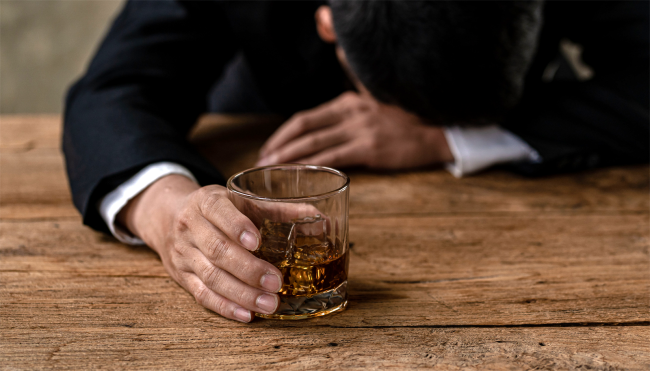
iStockphoto
Back in 2018, with new marijuana laws taking hold in states across America, binge drinking saw a rather large decline.
In states where marijuana was legalized, there was 13 percent less binge drinking than in states where weed was still outlawed.
That, apparently, is no longer the case.
According to a new University of Michigan study, binge drinking among adults 35 to 50 years-old is the highest it has ever been in America.
The study analyzed data on substance use in American adults between April and October 2022.
What the researchers discovered was that approximately 29 percent of adults between 35 and 50 years-old reported binge drinking within the past two weeks of being surveyed. The study defined binge drinking as having five or more drinks in a row.
By comparison, that is almost 4 percent higher than it was in 2021 and more than 6 percent higher than it was in 2012.
“We have seen a shift in the ages at which binge drinking is most prevalent,” Megan Patrick, Research Professor of Survey Research Center at the Institute for Social Research at the University of Michigan told New Scientist. “It used to be that the highest levels of binge drinking were more concentrated among those in their early to mid-20s. Prevalence is now much more similar for young adults and midlife adults.”
Also by comparison, adults between 19 and 30 years-old reported doing it almost 5 percent less in 2022 than in 2012.
“The younger age group may be doing similar kinds of behaviors, but they’re just using different substances,” said Denise Hien, Vice Provost for Research at Rutgers University.
Which leads us back to legalized marijuana.
Last year, marijuana use among 19 to 30 year-olds was the highest it has ever been.
Why older adults are binge drinking more than ever is currently unknown, but lingering effects of the pandemic, climate change, job loss and upheaval in the workplace could be contributors, according to Hien.
Joshua Gowin at the University of Colorado Denver – Anschutz Medical Campus also said, “People are getting back out there and living life again. They are going to weddings, having bachelor parties. Something like that could certainly be associated with increases in binge drinking.”
Interestingly, a 2018 report in the journal Neuropharmacology blamed binge drinking on certain people just being wired different genetically.
Considering the fact that in 2019, alcohol use accounted for 2.07 million deaths of males and 374,000 deaths of females globally, the rise in binge drinking among middle-aged adults is certainly reason for concern.